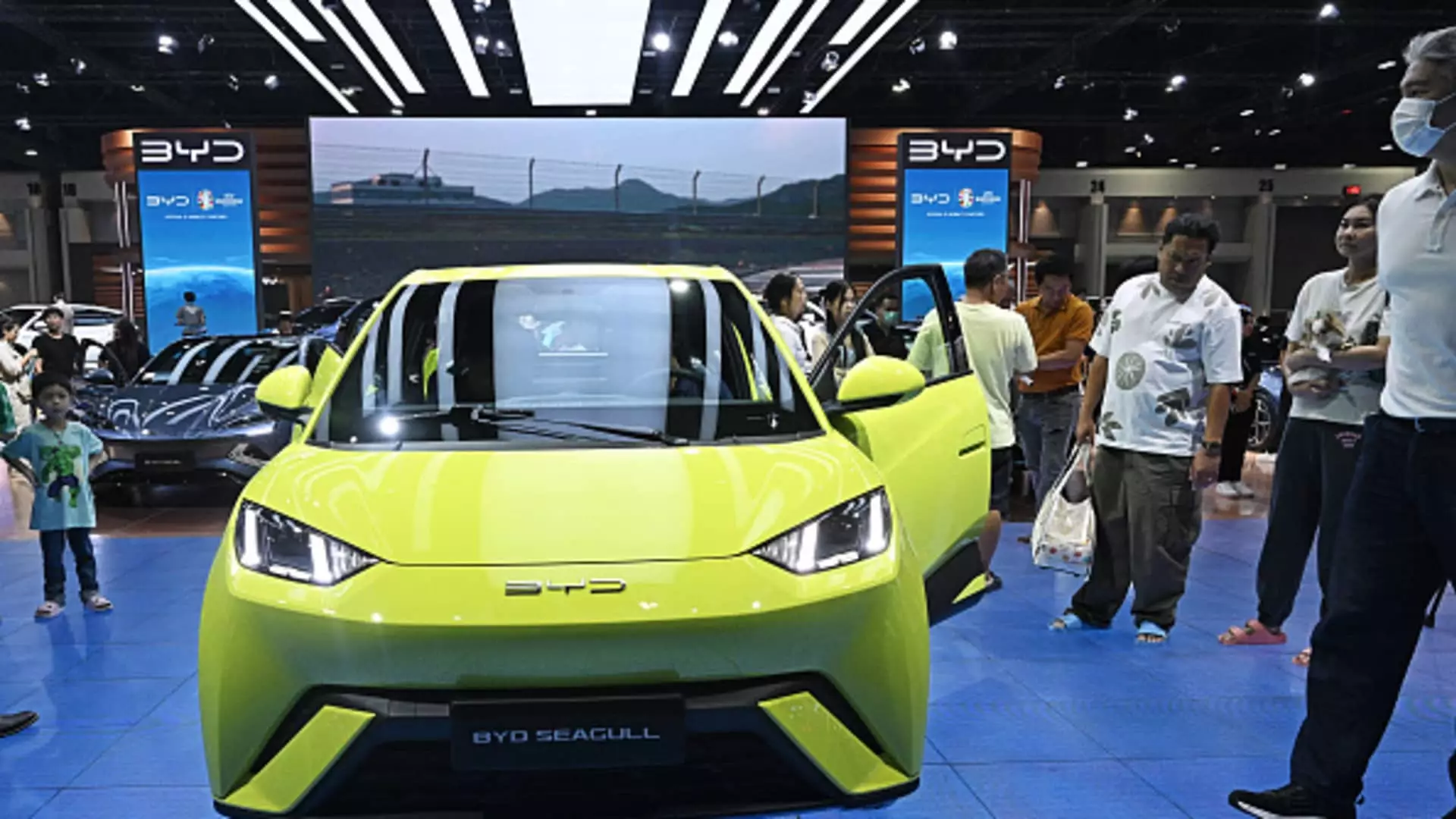The European Union is set to unveil its tariff rate plan for Chinese electric vehicles this week, in an effort to curb low-priced, subsidized imports. The EU currently imposes a 10% duty on imported EVs, but is expected to increase those fees for Chinese EVs starting July 4. Analysts predict a potential tariff rate hike to as high as 30-50%, raising concerns about the impact on the Chinese EV industry.
Citi analysts have suggested that the tariff rate on Chinese EVs could be raised to approximately 25-30% from the current 10%, with a risk scenario of up to 50%. Senior investment strategist Anthony Sassine anticipates the tariff rates to fall between 10% and 20%, possibly leaning towards the higher end due to recent political developments in the European Parliament. President Ursula von der Leyen has advocated for a more cautious approach towards Beijing, following an ongoing investigation into subsidies received by Chinese EV manufacturers.
Despite the impending tariff hikes, experts like Sassine believe that Chinese manufacturers are so efficient and advanced that the impact on pricing may be minimal. He expressed confidence that Chinese EVs would remain competitive in the EU market even with increased tariffs. Overcapacity concerns have been raised in the U.S. and Europe due to the rapid growth of China’s EV industry, prompting the Biden administration to impose higher tariffs on Chinese imports.
Chinese EV companies have been expanding their presence globally, with manufacturers like Xpeng, BYD, and Nio showcasing their models in Europe. BYD, for instance, announced plans to build a new factory in Hungary, while Chery entered a joint venture in Spain to develop new EVs. Geopolitics professor Cedomir Nestorovic noted that Chinese manufacturers are actively exploring opportunities in the EU and are considering setting up factories within Europe to avoid potential tariffs.
Despite the challenges posed by tariffs, Chinese automakers are looking for ways to remain competitive in the global market. Nio, for example, is eyeing Hungary as a potential location for expansion. While the EU may not pose significant challenges for Chinese manufacturers, the situation in the U.S. could be more complex due to stricter trade policies. As the global EV market continues to evolve, it will be interesting to see how Chinese companies adapt to changing regulations and trade dynamics.


Leave a Reply